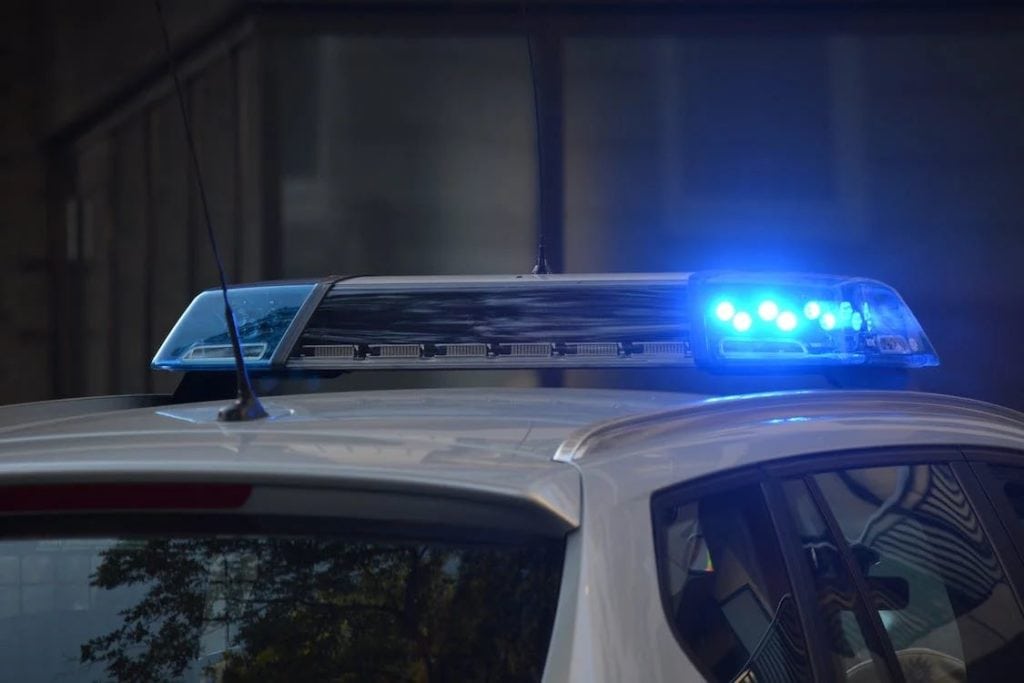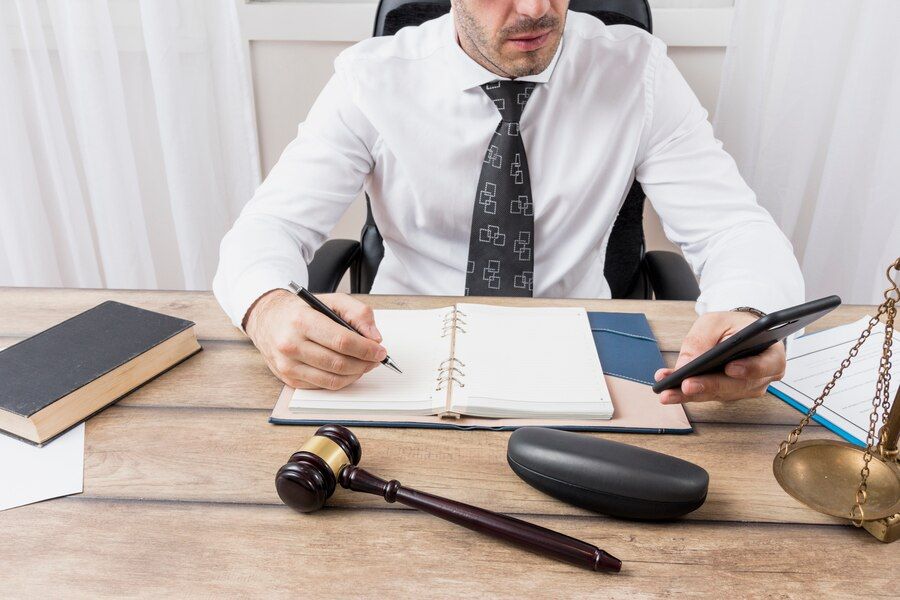
Car accidents are difficult to process, but when a collision involves a police car during a chase, the situation becomes complex. In the state of Nevada, where cities and open roads create the backdrop for police activities, understanding the legal repercussions of such incidents is crucial. This article aims to guide the following key aspects: Who is responsible for damages during a police chase? How can you seek compensation for damages, and how can an attorney assist you in navigating this situation?
How Do Police Chases Result in Accidents?
Police chases, often a cinematic staple, have real-life consequences beyond the pursuit. When law enforcement officers engage in high-speed chases, the risk of accidents significantly increases. The urgency of apprehending a suspect can lead to officers neglecting traffic rules, disregarding speed limits, and making split-second decisions that may result in collisions with other vehicles.
In the heat of pursuit, officers may be focused on capturing a suspect, potentially leading to a lack of attention to their surroundings. High-speed chases, sudden lane changes, and intersections are common scenarios where accidents can occur. Unfortunately, innocent bystanders and other drivers may find themselves caught in the crossfire of these pursuits, facing severe consequences that extend far beyond the initial impact.
What to Do if a Police Car Hits You During a Chase?
Experiencing a car accident involving a police chase can be a traumatic and confusing situation. Here are essential steps to take if a police car hits you during a chase:
Assess and Address Injuries: Prioritize safety by checking for injuries and moving to a secure location. Call for medical assistance if needed.
Report the Incident: Call the police to report the accident, provide accurate details, and request an official report.
Gather Essential Information: Collect information such as police officers’ names, badge numbers, and police cars’ license plates, and exchange details with other parties involved.
Document the Scene: Take photographs of the accident scene, capturing vehicle damage, positions, and relevant road signs.
Identify Witnesses: Obtain contact information and statements from witnesses to gather additional perspectives on the events.
Contact Your Insurance Company: Inform your insurance company about the accident, but avoid detailed statements until consulting with legal counsel.
Consult with an Attorney: Seek the advice of an experienced attorney to understand your rights, navigate legal procedures, and pursue fair compensation.
Who Is Responsible for Damages During a Police Chase?
When a police chase results in an accident, untangling the web of responsibility involves a nuanced examination of the incident’s circumstances. Understanding who bears liability for the damages requires an exploration of the actions of both the law enforcement officers and the individual being pursued.
Police Officer Conduct:
The determination of responsibility frequently relies on whether the actions of the involved police officers during the pursuit can be classified as negligent or reckless. Local law enforcement agencies typically have established protocols governing police pursuits to minimize the risk of harm to the public. If officers deviate from these protocols or act in a manner that endangers others on the road, police departments may be held responsible for the resulting damages.
Factors contributing to officer liability may include:
Protocol Violations: If officers fail to adhere to established pursuit protocols, such as maintaining a safe distance, obeying traffic signals, or discontinuing the chase when it becomes too hazardous, their actions may be considered negligent.
Reckless Driving: Engaging in high-speed pursuits, aggressive maneuvers, or disregarding traffic laws can indicate reckless driving. The officer may be held accountable for the damages if such actions lead to a collision.
Failure to Assess Risks: Officers are trained to assess the risks and benefits of pursuing a suspect. If, during a chase, police officers fail to adequately evaluate the potential danger to the public and proceed recklessly, they may be deemed responsible for resulting damages.
Suspect’s Role:
In some cases, responsibility for damages extends to the suspect being pursued. If the individual being chased acts in a manner that directly contributes to the accident, they may share liability with law enforcement. If the suspect does not have insurance, you may need to turn to your insurance policy for uninsured motorist coverage. Factors contributing to suspect liability may include:
Evasive Maneuvers: If the suspect drives recklessly, takes evasive maneuvers, or engages in dangerous behavior that directly leads to the collision, they may be liable for the damages.
Criminal Activity: If the suspect’s actions, which prompted the pursuit, involve criminal conduct such as driving under the influence, their role in the incident may impact the determination of liability.
Shared Liability:
In many cases, responsibility for damages is not exclusive to either the law enforcement officers or the suspect. Both the suspect and police officer may share liability based on their respective actions. Shared liability scenarios often involve carefully examining the events leading up to the accident and the actions of each party involved.
How to Seek Compensation for Damages?
If you’ve been involved in an accident with a police department vehicle during a chase, seeking compensation for damages is essential. The process involves several key steps:
File a Claim: Immediately after the accident, file an insurance claim. Provide them with all relevant details about the incident, including the involvement of a police vehicle.
Contact Your Own Insurance Company: Even if the police are at fault, informing your insurance company promptly is crucial. In many cases, your insurance will cover the damages, and they may pursue compensation from the at-fault party later.
Medical Bills: If you sustained injuries, seek medical attention immediately. Keep detailed records of all medical expenses, including hospital bills, prescriptions, and ongoing treatment costs.
Consult an Attorney: Given the complexity of law enforcement cases, consulting with an experienced attorney is advisable. They can help you navigate the legal process, ensure your rights are protected, and assist in gathering evidence to establish liability.
How an Attorney Can Help:
Engaging an attorney with experience in handling cases involving police chases is crucial to ensuring a fair and just resolution. Here are ways in which an attorney can assist you:
Investigation and Evidence Gathering: Attorneys have the expertise to conduct thorough investigations, gathering evidence to establish the officer’s negligence and liability.
Navigating Government Immunity: Understanding the limits of government immunity is crucial in these cases. Attorneys can navigate these complexities and determine the best course of action.
Negotiating with Insurance Companies: Insurance companies may attempt to minimize payouts. An attorney can negotiate to ensure you receive fair compensation for damages, including property damage and medical bills.
Litigation in Civil Court: If a fair settlement cannot be reached through negotiations, an attorney can guide you through filing a lawsuit and representing you in civil court.

Consult BLG’s Experienced Car Accident Attorneys
Being involved in a car accident caused by a police chase is challenging and requires careful navigation of the legal landscape. Understanding your rights, documenting the incident, and seeking the guidance of an experienced attorney are crucial steps in ensuring you receive fair compensation for the damages incurred. In Nevada, as in any jurisdiction, the legal system is designed to provide recourse for those who have suffered harm due to the actions of others, even when those actions involve law enforcement officers in pursuit.
Are you grappling with the aftermath of a car accident involving a police chase? Seek guidance from experienced professionals who understand the complexities of such incidents. Contact the seasoned Car Accident Attorneys at BLG for expert legal assistance. Don’t navigate this challenging journey alone; let us help you secure the compensation you deserve.
Call us today for a free consultation.
FAQs
Who pays if your car is damaged during a police pursuit?
In many cases, the individual who initiated the pursuit (the suspect) is held responsible for any damages caused during the chase. However, the specifics can vary depending on the circumstances, local laws, and insurance policies. It’s advisable to contact your insurance provider and legal authorities for guidance tailored to your situation.
How long do you go to jail for a high-speed chase?
The duration of imprisonment for a high-speed chase can vary widely depending on the jurisdiction, the severity of the offenses committed during the chase, and any previous criminal record. Penalties may range from fines and probation to several years in prison, primarily if the chase resulted in injuries or fatalities. Consult local laws and legal experts for accurate and jurisdiction-specific information.
Can I chase someone who hit my car?
It is generally not recommended to chase someone who hit your car. Pursuing a vehicle can be dangerous and lead to further accidents or legal consequences. Instead, try to note the license plate number, vehicle description, and any other relevant details, and report the incident to the police. Let law enforcement handle the situation to ensure a safe and lawful resolution.
What happens if a cop hits your car?
If a police officer is involved in a collision with your car, the procedures are similar to any other traffic accident. It’s essential to gather information such as the officer’s name and badge number, the police department they belong to, and details about the incident. Report the accident to the relevant authorities, and if there are injuries or damages, contact your insurance company. In such cases, it’s crucial to document the scene and, if necessary, consult legal advice to ensure your rights are protected.





